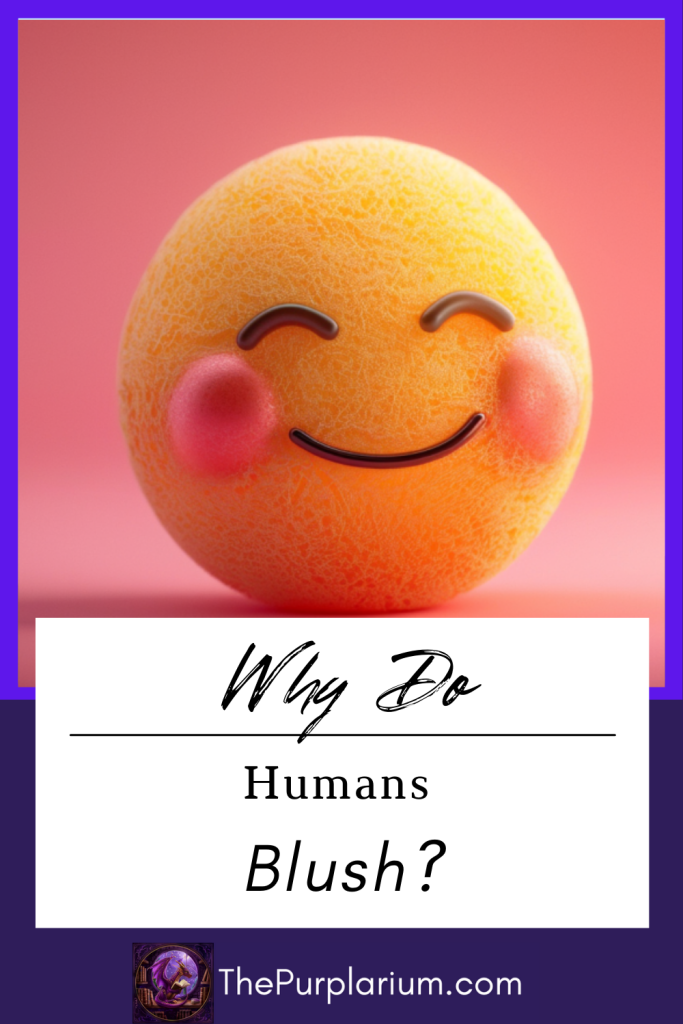Blushing is something all humans do, but it’s unique to our species. Scientists still don’t fully understand why it happens.
Have you ever felt your face turn red when your teacher called on you in class? Or when you tripped and everyone looked at you? That rush of blood to your cheeks is what we call blushing, and it usually happens when we feel embarrassed.

What Causes Blushing?
Blushing is a reaction controlled by our sympathetic nervous system, which also manages our fight-or-flight response. When we get embarrassed, our body releases adrenaline. This hormone causes our blood vessels to widen, improving blood flow and oxygen delivery. Because the blood vessels in our cheeks are closer to the surface than in other parts of the body, our cheeks turn red.
Dr. Tanya Azarani, a psychiatrist in Brooklyn, explained that as more blood flows to our face, our complexion turns red, and we feel warm. This usually happens when we feel ashamed, self-conscious, or angry.
The sympathetic nervous system triggers a response to perceived social threats. It’s like our body is trying to prepare us for a physical challenge, even though the challenge is social.
The Vicious Cycle of Blushing
Blushing can be a self-perpetuating cycle. The more anxious we feel about blushing, the more we blush. Even being told you’re blushing, when you aren’t, can make you start. Believing you’ll blush can actually make it happen.
Dr. Azarani noted that the anxiety about blushing causes more neurological arousal, which in turn causes more blushing. This can make us feel even more self-conscious and anxious. The physical sensation of warmth and the visibility of the redness can make the feeling more intense.
Why Do We Blush?
We blush not just when we’re embarrassed but also when we feel we’re the center of attention. In one study, people who sang out loud while someone stared at one side of their face showed increased blood flow to the watched cheek.
Shame can also trigger blushing. If a topic makes us feel ashamed, we might blush even if we’re not the center of attention. Feeling inferior to those around us, whether socially or professionally, can also cause blushing.
Scientists believe blushing might be connected to social and emotional signals. It could be a way to show others that we recognize a social mistake, making us appear more likable and trustworthy.
The Social Benefits of Blushing
Even though the exact purpose of blushing is unknown, it seems to have some social benefits. Blushing acts like a “built-in polygraph” showing others that our emotional experience is genuine. Dr. Marije aan het Rot, a behavioral scientist, says that when we blush in an embarrassing situation, others see us as more likable and trustworthy.
Blushing can also serve as a non-verbal apology, enforcing social codes. Research shows that people who blush are often perceived as more trustworthy. Dr. Corine Dijk, a psychology professor, notes that after making a mistake, people who blush are liked more by others.
This involuntary reaction may help smooth over social interactions. By showing a physical response to embarrassment or shame, we signal to others that we are aware of our actions and regret them.
The Downsides of Blushing
Despite its social benefits, not being able to control blushing can make us dislike it. Erythrophobia, the fear of blushing, is a type of anxiety disorder. This fear can negatively affect social and emotional lives. For some, the fear of blushing makes social interactions very difficult.
One person shared with The Atlantic that blushing made it hard to meet people and felt it hurt his career because he avoided public scrutiny. Severe blushing can lead to extreme measures like endothoracic sympathectomy, a surgery that cuts the nerve triggering the blushing reflex. For less severe cases, cognitive behavioral therapy is recommended.
Blushing can feel like a betrayal by our own body, revealing emotions we’d rather keep private. This can be particularly challenging in professional settings where maintaining composure is important.

Wrapping Up
Blushing is a fascinating and complex human reaction. While it can be embarrassing, it also plays a role in social communication. It signals our genuine feelings and can help build trust with others. Understanding why we blush and how it affects us can help us manage this unique trait better.
